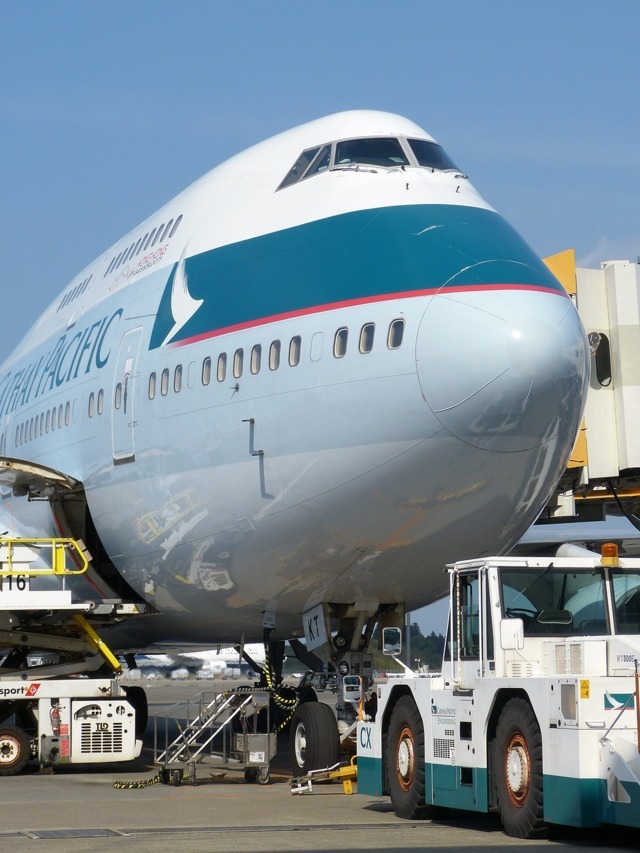 As wealth creation in the world’s second largest economy continues to take hold, the population of affluent Chinese citizens is on the rise. But how much of that wealth will remain in China? A recent survey by Barclays, which included 2,000 of its most well-to-do clients with a net worth of at least $1.5 million, indicates that approximately 47% of Chinese customers intend to move to another country within the next five years – a figure that is higher than the global average of 29% – with Canada coming in as one of the most desirable destinations to set up permanent residence.
As wealth creation in the world’s second largest economy continues to take hold, the population of affluent Chinese citizens is on the rise. But how much of that wealth will remain in China? A recent survey by Barclays, which included 2,000 of its most well-to-do clients with a net worth of at least $1.5 million, indicates that approximately 47% of Chinese customers intend to move to another country within the next five years – a figure that is higher than the global average of 29% – with Canada coming in as one of the most desirable destinations to set up permanent residence.
78% of the survey’s Chinese participants said they would like to live elsewhere because of better educational and employment opportunities for children. Other factors influencing the decision to emigrate from China include economic security and suitable climate (73%), and better health care and social services (18%).
Canada is the second most-preferred destination, with 23% of respondents saying they would like to move to the land of maple syrup and hockey. The top destination for Chinese emigrants is Hong Kong, with 30% preferring to stay close to China, while 21% hope to move to the United States.
The survey also showed that wealthy Singaporeans were the second most willing to relocate to a different country at 23%. Barclays’ clients from the United Kingdom and Hong Kong follow at 20% and 16% respectively.
Affluent Indian and American clients of Barclays were the least eager to move to another country at 5% and 6% respectively.
“The wealthy are increasingly being motivated to move between countries in order to fulfill their international career aspirations, seize financial opportunities and ensure a better quality education for their children,” Barclays noted in its report.
But will wealthy migrants continue to see Canada as an attractive destination to relocate?
Well-to-do individuals and families may not be able to easily realize their plans of relocating to Canada, given the changes made by the Canadian government in its Canadian Immigrant Investor Program.
In 2010, the Canadian government changed the rules of the program as it increased the investment requirements from $400,000 to $800,000 and at the same time doubled the net asset requirement from $800,000 to $1,600,000. The investment requirement consists of a 5-year interest-free loan to the government.
In 2012, Jason Kenney (Canadian Minister for Citizenship, Immigration and Multiculturalism) announced that the government was suspending the program. No new applicants were to be received by Citizenship and Immigration Canada (CIC) according to Kenney.
Around 85,500 individuals, including family members of the more than 25,000 investors, were still awaiting decisions on their applications at the time of Kenney’s announcement in 2012. It is estimated, at the current rate at which the remaining applications in the queue are being processed, that it could take ten years to clear the backlog.
Kenney had said that he did not plan to scrap the Immigrant Investor Program, but noted that certain changes had to be made to the program to make it more beneficial for the government.
“Canada’s Immigrant Investor Program undervalues the importance of Canadian citizenship and fails to ensure that new investors are investing actively in the Canadian economy,” Kenney said at the time.
Canada’s Immigrant Investor Program had been widely criticized, as many said that it was a program allowing immigrants to buy their entry to the country as citizens without making a long-term contribution to the economy. It was suggested that the program should be modified to focus more on job creation.
Many critics also questioned where the funds given by investors go upon receipt by the federal government.
CIC, however, insists that the money is given to provinces that take part in the program since investors are given the guaranty that their investments will be repaid after five years.
Given the criticism, CIC is pondering a new investor immigration program that would complement the existing one as apposed to replacing it. It was mentioned that the desired profile for applicants to the immigrant investor program would be a “higher-value global investor” – in other words,a more actively involved investor, such as a venture capitalist, who is willing to manage the investment and assume the required risks.
There still remains strong support for these types of business immigration programs from those who recognize the significant contributions that immigrants have made to Canada and the opportunity for immigration to drive economic growth and to create employment and wealth going forward.
http://www.cbc.ca/news/canada/super-rich-investors-stuck-in-immigration-limbo-1.1261611
http://blogs.wsj.com/chinarealtime/2014/09/15/almost-half-of-wealthy-chinese-want-to-leave/

